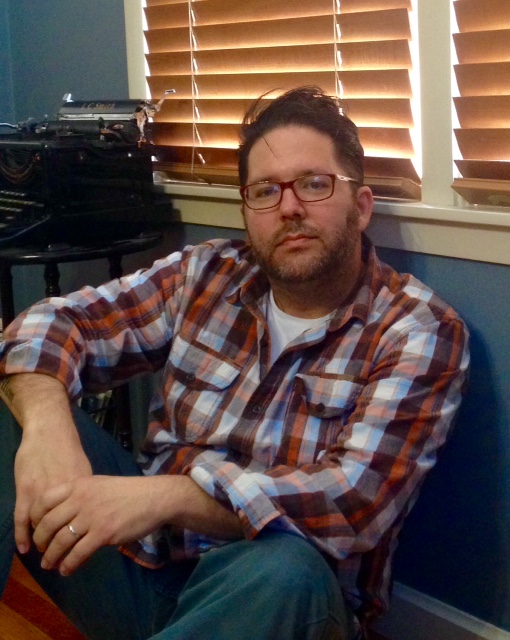
The last time I talked with Brandon Hobson, the subject of our conversation was his terrific novel Deep Ellum, which focused on an eccentric and estranged family in and around Dallas. His new novel, Desolation of Avenues Untold, doubles down on its predecessor’s eccentricities: the setting is a city-sized attempt to replicate New York in a corner of Texas. Among the characters are a group of cinematic obsessives, a onetime rock star who has reinvented himself as a cult leader, and a relatively ordinary man who finds himself at the center of numerous conspiracies. The McGuffin at the heart of Hobson’s novel is a rumored Charlie Chaplin home movie, which may or may not contain decidedly sinister content. To learn more about the novel’s origins, I checked in with Hobson via email.
Desolation of Avenues Untold has a number of immediately striking elements, from a possibly apocryphal film to a rock star-turned-cult leader to a city doppelganger of New York. Which came first?
The Chaplin film rumors came first. Once I knew I had the premise of a never before seen home film involving an aging Chaplin, the other stuff followed. A friend, James Brubaker, wrote the Foreword, which I think is important to mention here.
How did you go about selecting Charlie Chaplin as the figure around whom this mysterious film coalesces?
I hear many people say they’re sort of obsessed with him, his films, and his private life. I was reading parts of a biography about him and found myself drawn to his interest in women, particularly younger women, and the tramp image he conveyed on the screen. So it started from there. I would love for such a film to exist. I think we’ve become desensitized to celebrity sex scandals for the most part, but I kept coming back to the possibilities of an unseen Charlie Chaplin home film surfacing. I bet the first thing the public would do is poison it.
Where did the idea of replicating New York City in another state come from?
What happens to cities when they lose their identity is a question I’ve asked the ceiling. Is New York the same New York good old Jagger sang about in “Shattered”? I don’t live there, but it doesn’t seem to be. I wonder whether people living outside the U.S. would want to visit a city in middle America? Probably not. I don’t know, Tobias. The tribal land is maybe the most interesting land happening, man. Do you like theme parks, Tobias? Six Flags used to have parts of the park representing different countries, and each country played music from that country, and served a special type of food, and as a kid my imagination went wild.
There are a number of doubles in this novel: a city modeled on NYC, two bands with the same name, even the surname Chaplin. Was there one of these that began the motif?
The surname Chaplin.
How did you settle on the different ways you conveyed dialogue in this novel?
The random people of D.C.—all the avenues, Bleaker Street, the Bowery, the ghosts of famous silent film stars—they all have a voice in this place, and maybe what I was thinking about was like everything else we consume in mass quantities, all the technology and social media and people speaking into oblivion, these voices come screaming at us from all around the city.
Deep Ellum struck me as a fairly realistic novel; this new one seems much more stylized. How do you view the two in relation to one another? Was the stylistic contrast a conscious decision as you moved from one project to the next?
Yes, very different book, different style. Desolation has a Foreword and Afterword, multiple povs, random conversations, newspaper clips, and interviews, and I wanted it to be somewhat absurd. I wanted this book to be about consumption at great lengths, paranoia, desensitization. The lengths to which people go to obtain something, even to become someone else. Lou Strepp AKA Lou Jones getting a facial reconstruction to look like Born’s father in an attempt to help him obtain the Chaplin film is one extreme example. So there’s an element of absurdity in this book that wasn’t so much in Deep Ellum.
And, the perennial question: what are you working on now?
I just finished a book with parts that have appeared in NOON and Conjunctions and some other places. And I’ve started a new novel.
Follow Vol. 1 Brooklyn on Twitter, Facebook, Google +, our Tumblr, and sign up for our mailing list.
